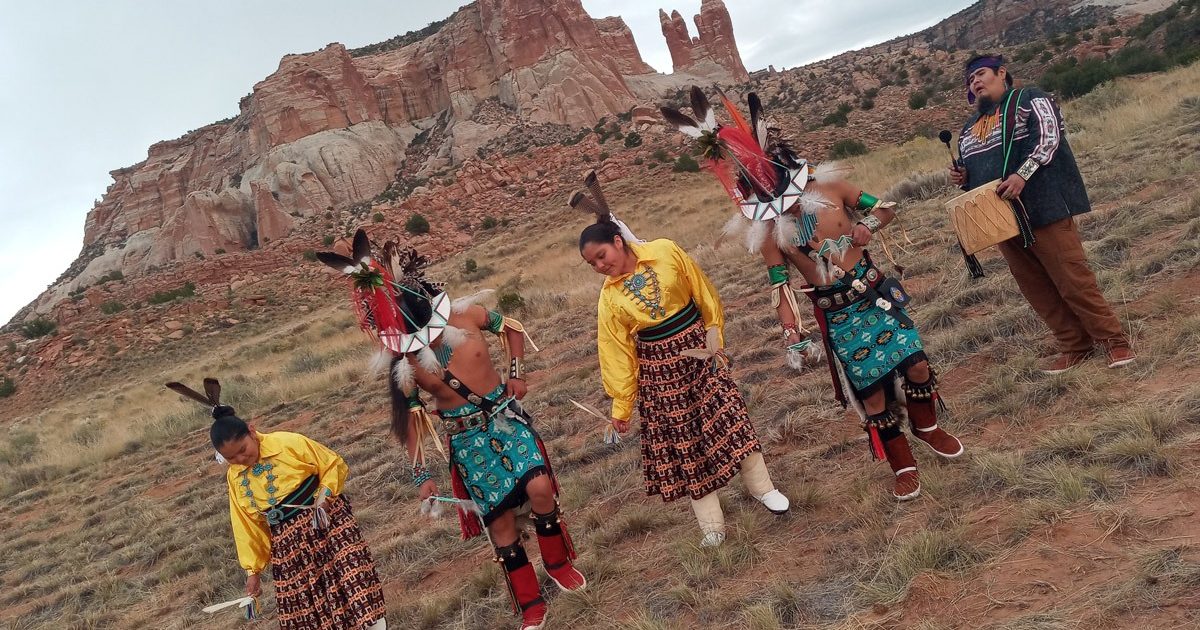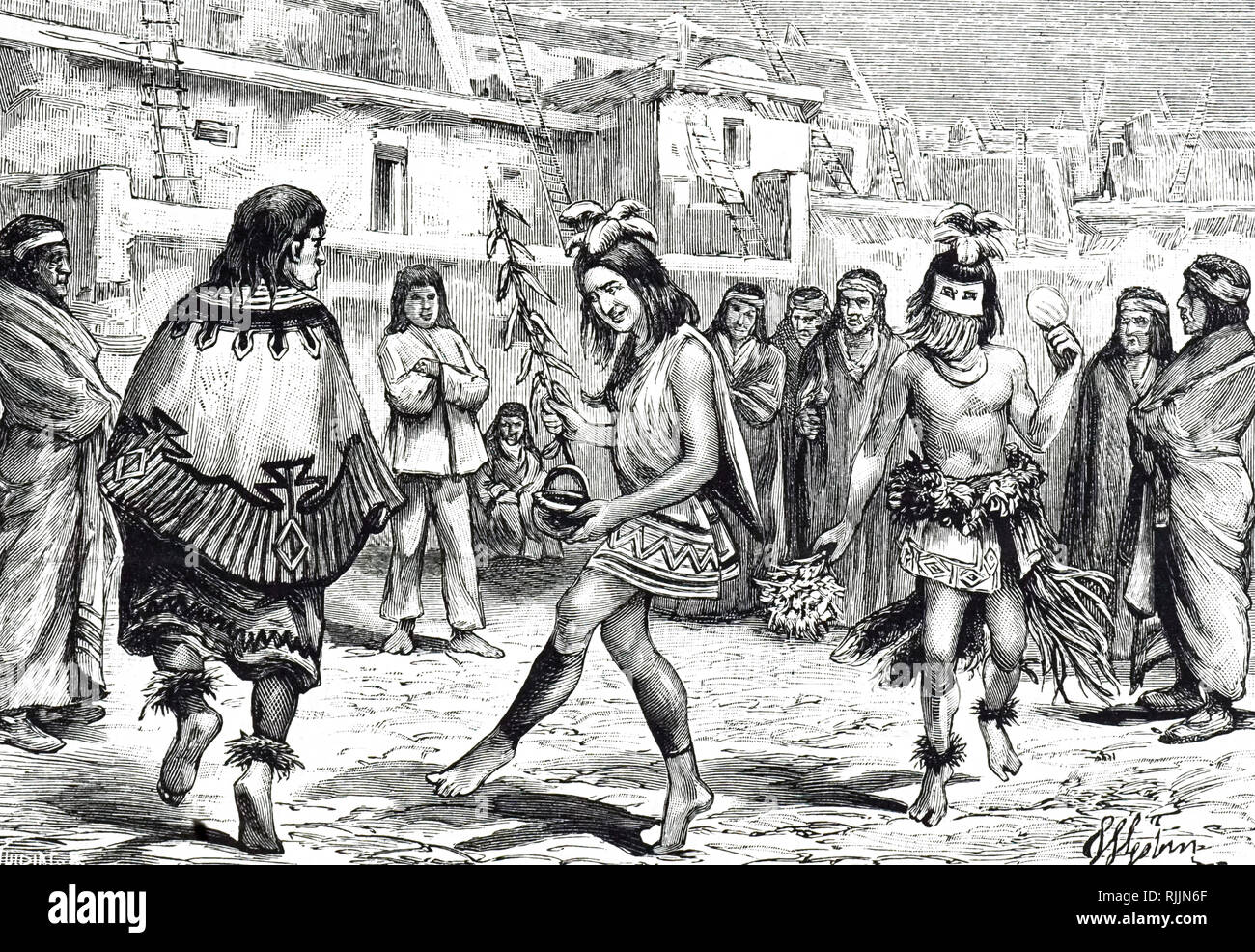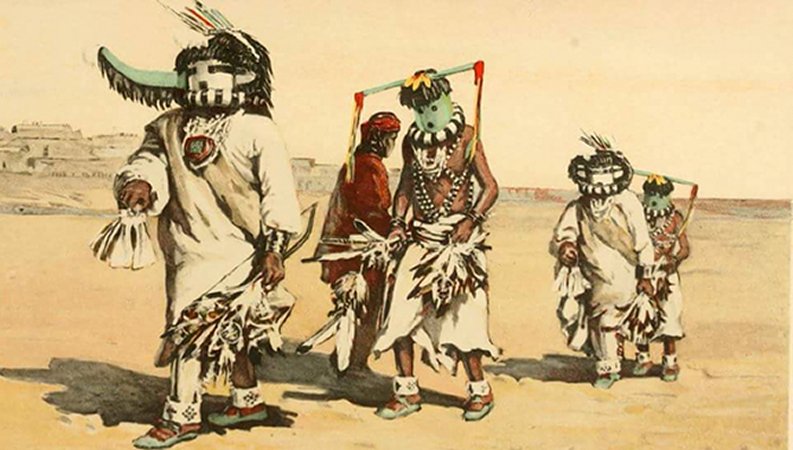
Echoes of the Ancients: The Enduring Spiritual Tapestry of the Zuni Pueblo
In the high desert of western New Mexico, where the vast sky meets the ancient earth, lies the Zuni Pueblo. Home to the Zuni people, one of the largest and most culturally distinctive of the nineteen New Mexico Pueblos, this land is not merely a geographic location but the very heart of a profound and enduring spiritual universe. For the Zuni, spirituality is not confined to a separate realm of belief or a specific day of the week; it is woven into the fabric of daily life, an inseparable part of their identity, history, and future. It is a vibrant, living tradition, deeply rooted in a cosmogony that speaks of emergence, balance, reciprocity, and an unbreakable bond with the natural world.
The foundation of Zuni spiritual belief lies in a rich origin story that details the emergence of the Zuni people from the underworld. Their supreme creator is Awonaawilona, the "All-Container," a being who existed before creation, self-manifested from mist and water. From this primordial state, Awonaawilona created the world, giving birth to the Sun Father (Áho’i) and the Moon Mother (Áhote), who are central to the Zuni cosmos. This journey of emergence, often recounted in elaborate oral traditions, speaks of the people’s arduous ascent through various levels of the earth, guided by spiritual beings, until they reached the "Middle Place" – Halona Idiwan’a, the sacred center of the world, where Zuni Pueblo stands today. This narrative instills a deep sense of belonging and destiny, anchoring the Zuni to their ancestral lands with an unbreakable spiritual tether.
Central to Zuni spirituality are the Kokko, often referred to as Kachinas by outsiders, though the Zuni term is specific to their own tradition. These are benevolent supernatural beings who serve as intermediaries between the human world and the spiritual realm. They represent the life-giving forces of nature, particularly rain, which is paramount in the arid Southwest. Kokko are believed to reside in sacred lakes and springs, journeying to the Pueblo to bring blessings, health, fertility, and, most importantly, rain – the very essence of life for an agricultural people. They are honored and embodied by masked dancers during elaborate ceremonies held in kivas (sacred underground chambers) and public plazas throughout the year, especially during the winter months.

The reverence for the Kokko is not merely symbolic; it is a direct engagement with the forces that sustain life. Each Kokko has specific characteristics, songs, and dances, and their appearance is meticulously managed by religious societies. The act of becoming a Kokko dancer involves rigorous spiritual preparation and a profound understanding of the sacred narratives. "For us, the Kokko are not just masks or costumes," explained a Zuni elder, speaking generally about the reverence, "they are the spirits, present among us, bringing their power and wisdom. When we dance, we are fulfilling our ancient covenant, ensuring the continuation of life." This deep sense of responsibility underscores every ritual.
The sacred landscape plays an equally vital role in Zuni spiritual life. Dowa Yalanne, or Corn Mountain, a towering mesa east of the Pueblo, is perhaps the most prominent sacred site. It is not merely a geological formation but a spiritual refuge, a place of ancestral memory, and a sanctuary where the Zuni sought refuge during the Pueblo Revolt of 1680. Legends speak of it as a place where the spirits of the ancestors reside and where vital ceremonies are performed. Its majestic presence dominates the skyline, serving as a constant reminder of the spiritual power inherent in the land. Every spring, streams, and specific rock formations around the Pueblo hold spiritual significance, imbued with stories and connections to the Zuni’s journey and their spiritual guardians.
Rituals and ceremonies form the backbone of Zuni spiritual practice, meticulously observed throughout the year according to a lunar calendar. These ceremonies are not just performances; they are vital acts of communion, thanksgiving, and renewal. The most renowned and elaborate of these is the Shalako ceremony, held annually in late November or early December, coinciding with the Winter Solstice. This multi-day event is a breathtaking spectacle of devotion, artistry, and community. Its primary purpose is to bless new homes, ensuring prosperity and good fortune, and to bring the Kokko spirits to the Pueblo for the winter season.
During Shalako, towering figures, some nearly ten feet tall, embody the Shalako Kokko. These magnificent figures, with their bird-like heads and flowing robes, move with an ethereal grace, accompanied by chanters and other Kokko figures. The entire community participates, preparing elaborate feasts, renovating homes, and observing strict spiritual protocols. The sound of the drums, the hypnotic chants, and the visual grandeur of the dancers create an immersive spiritual experience that transcends the mundane. It is a powerful reaffirmation of Zuni identity, a moment when the human and spiritual worlds converge, reinforcing the cosmic order. The Shalako ceremony is deeply private in its inner workings, yet a portion of it is public, offering a glimpse into the profound spiritual life of the Zuni.
Beyond the grandeur of Shalako, countless other ceremonies, both public and private, mark the Zuni year. There are rituals for planting and harvesting, for healing, for initiation into religious societies, and for marking significant life passages. Each ceremony is meticulously planned and executed by specialized religious societies, such as the Rain Priests (who pray for rain and oversee water-related rituals) and the Bow Priests (who historically protected the Pueblo and now safeguard its spiritual integrity). These societies hold vast knowledge passed down through generations, ensuring the continuity of the Zuni way of life.
The core values underpinning Zuni spirituality are reciprocity, balance, and profound respect for all living things. The Zuni worldview emphasizes a give-and-take relationship with the earth and its inhabitants. Humans are not seen as superior to nature but as an integral part of an interconnected web of life. Offerings of cornmeal, turquoise, and other sacred items are made to the earth, the water, and the spirits in exchange for their blessings. "We take care of the land, and the land takes care of us," is a common sentiment that encapsulates this philosophy. This holistic view extends to human relationships, fostering a strong sense of community, cooperation, and mutual support within the Pueblo.
Art is another powerful expression of Zuni spirituality. The Zuni are renowned for their intricate jewelry, pottery, and especially their fetishes. Zuni fetishes are carved animal figures, often made from stone, believed to embody the spirit of the animal they represent. These are not merely decorative objects but sacred tools, imbued with protective and healing powers. The bear fetish, for example, is associated with strength and healing, while the wolf symbolizes protection and guidance. Each carving is a prayer, a connection to the animal’s spirit, reflecting the Zuni belief that all creatures possess a unique spiritual essence. Similarly, Zuni pottery, with its distinctive geometric patterns and symbolic motifs, often reflects cosmological themes, clan symbols, and prayers for rain and fertility.
The preservation of Zuni spiritual beliefs faces challenges in the modern world. The encroachment of Western culture, the influence of technology, and the struggle to maintain traditional ways in a rapidly changing society are constant pressures. Yet, the Zuni have demonstrated remarkable resilience. Their spiritual leaders and community members work tirelessly to transmit their language (Shiwi), their stories, and their ceremonial knowledge to younger generations. The secrecy surrounding many sacred practices, a tradition strengthened after centuries of colonial attempts to suppress indigenous religions, serves as a protective barrier, ensuring the purity and integrity of their beliefs.

In a world increasingly disconnected from the natural rhythms of life, the Zuni Pueblo offers a powerful example of an enduring spiritual tradition. Their reverence for the earth, their profound connection to ancestral wisdom, and their unwavering commitment to community harmony provide valuable lessons. The Zuni spiritual tapestry, with its intricate threads of cosmology, ritual, art, and values, continues to be woven anew with each generation, a testament to the enduring power of faith and the deep wisdom of a people living in harmony with the sacred landscape they call home. It is a living testament to the human spirit’s capacity to maintain its essence, even in the face of centuries of change, echoing the timeless truths of their ancient ancestors across the high desert winds.


